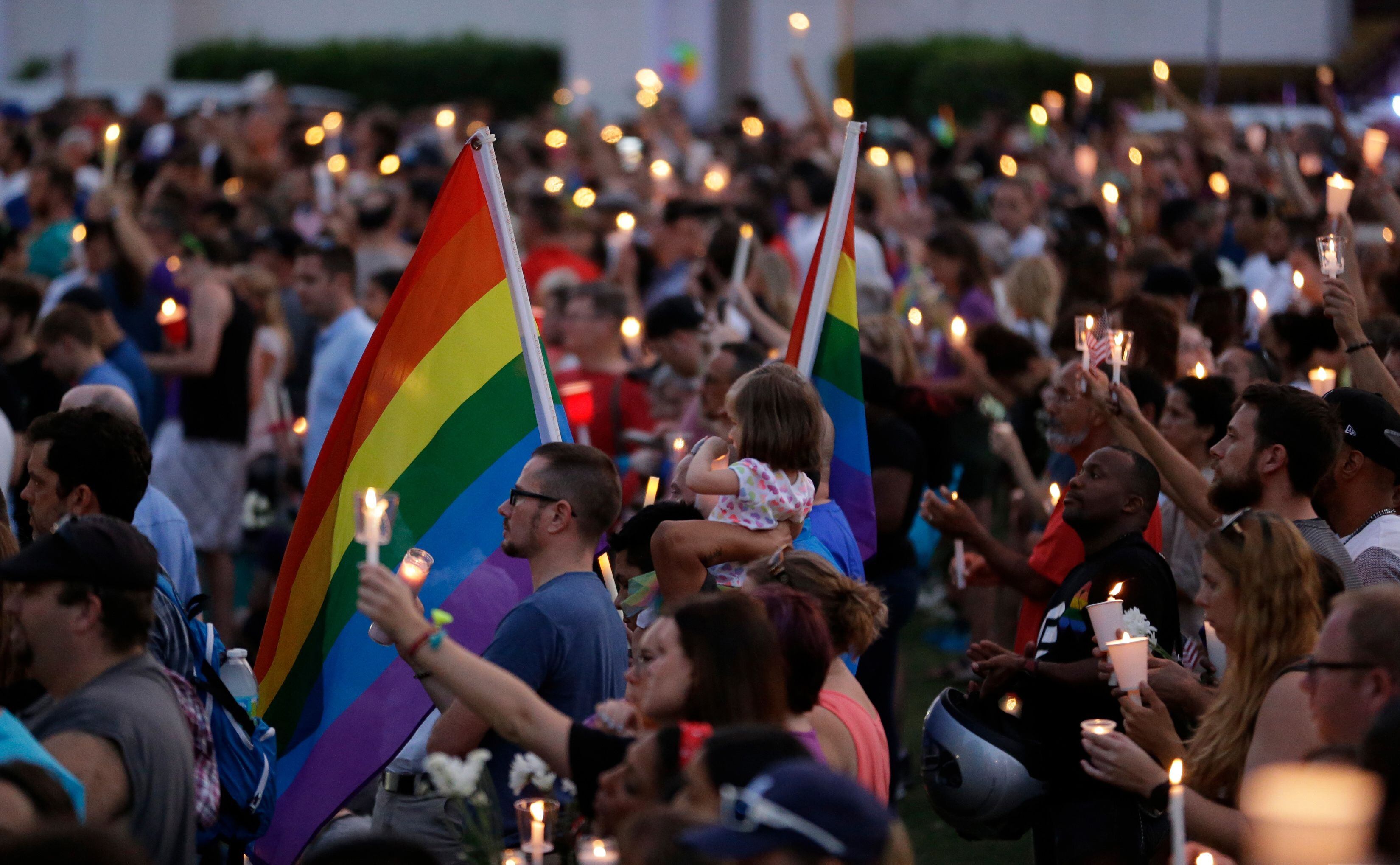Last week marked three years since 49 people were gunned down at Pulse, a gay nightclub in Orlando. At the time it was the deadliest mass shooting in U.S. history. Their deaths, however, were not recorded in Washington as anti-LGBTQ violence since Florida, at the time, did not report to the federal database.
Today, Rep. Sean Patrick Maloney (D-N.Y.) is working to strengthen the government's ability to track violence against the LGBTQ community in an effort to combat the enduring epidemic.
“We know there is terrible violence against the LGBT community, particularly the transgender community … and we don't capture that data the way we should,” Maloney told Cheddar. “It is about being seen in the society, and it is about knowing the scope of the problem.”
The FBI reported 1,338 people were victims of sexual orientation hate crimes in 2017, which experts estimate is just a fraction of the actual number.
Maloney’s proposed legislation — the LGBTQ Essential Data Act — would provide $25 million of additional funding to the Center for Disease Control’s National Violent Death Reporting System (NVDRS) to help track anti-LGBTQ violence. The bill was introduced on the three-year anniversary of the Pulse massacre.

The NVDRS, which records seven violent deaths every hour in the U.S., is reliant on state officials submitting data. Yet 10 states are currently dealing with two-year backlogs and have not released any statistics on specific hate crimes, according to Maloney’s office.
“There needs to be a better framework put around this so we have the same quality data around violence against our community that you would have against any community,” added Maloney, who is the first openly gay member of Congress from New York.
‘Who We Are Must Not Be Erased When We Die’
The legislation is supported by numerous LGBTQ rights gourps, including The Trevor Project, PFLAG National, the Gay, Lesbian, and Straight Education Network, and Human Rights Campaign, which is the largest of such organizations in the U.S.
"In an era where the Trump-Pence administration is attempting to erase LGBTQ people from government websites and data collection, legislation like the LGBTQ Essential Data Act is all the more crucial,” David Stacy, Human Rights Campaign’s government affairs director, said in a statement. “The LGBTQ Essential Data Act will give lawmakers and law enforcement the necessary tools to work toward justice and develop comprehensive legislative solutions to fight this epidemic.”
The Trevor Project, a non-profit that advocates for LGBTQ youth, praised the bill for mandating that “life-saving data to prevent future violent deaths” be recorded nationwide.
“Who we are must not be erased when we die,” Sam Brinton, The Trevor Project’s head of advocacy and government affairs, said in a statement.
The LGBTQ Essential Data Act is also co-sponsored by 72 other House Democrats, including big names like Ro Khanna of California; Rashida Tlaib of Michigan; Debbie Wasserman Schultz of Florida; and Ayanna Pressley and Joseph Kennedy III of Massachusetts.
“If we don’t know the scope of anti-LGBTQ violence in this country, we can’t bring it to an end,” Rep. Kennedy said last week.
The bill, however, has no co-sponsors from the Republican party, which Maloney said moved “even further into the dark ages” on LGBTQ issues under President Trump. Republicans “need to get out of the past and into the future,” he said.









